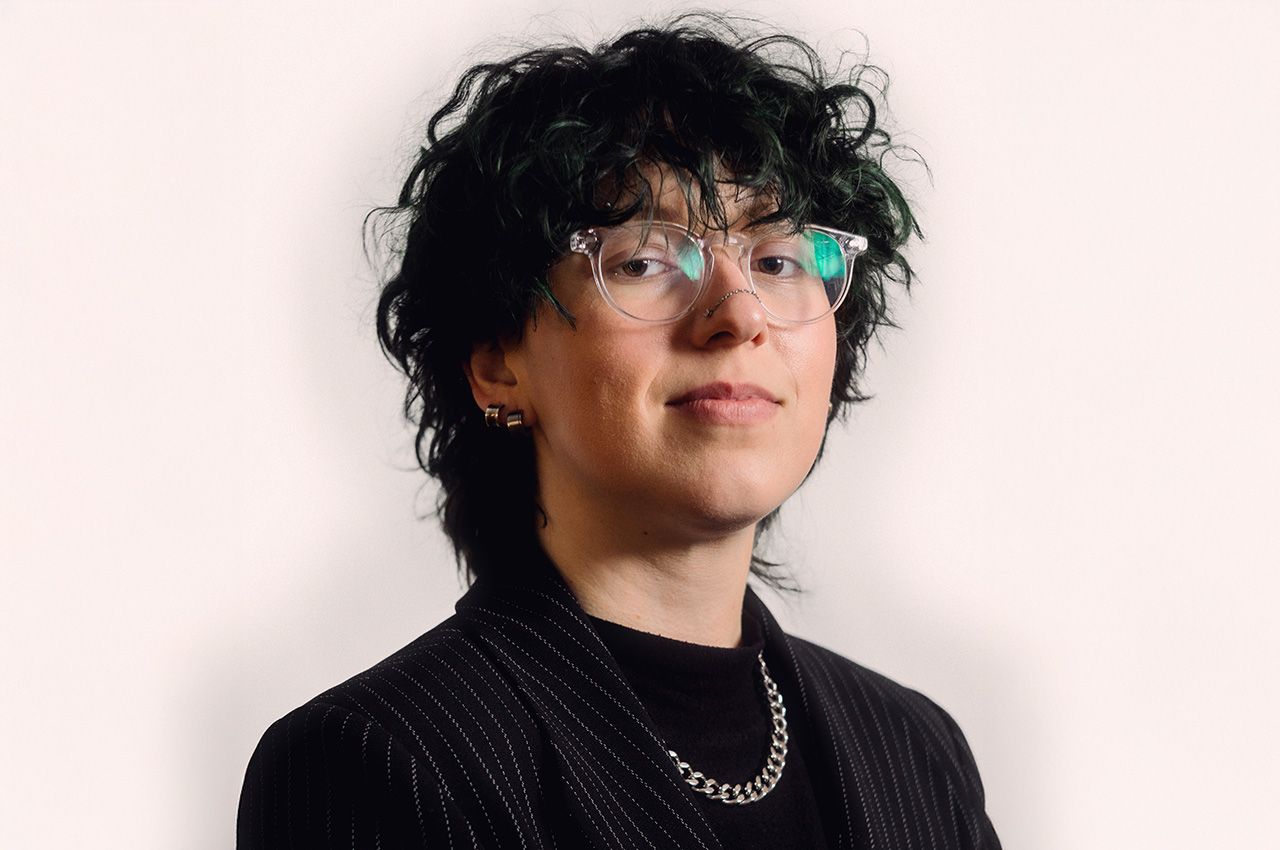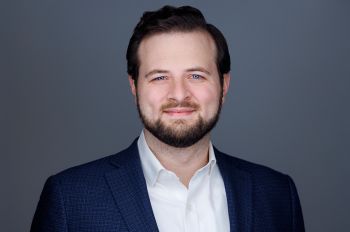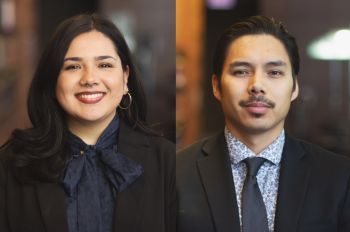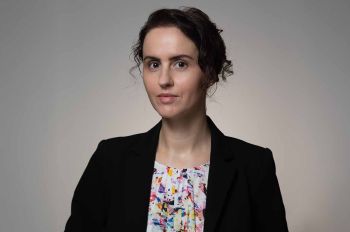Focusing on Protecting Survivors: More Perfect Union Writing Competition Winner Named

“I think that there’s a great illusion that a lot of us care about domestic violence, but many people don’t understand the actual inner workings and the more complicated side effects,” says Tashi Gordillo ’26. “People have this idea of what a victim should do and how a victim should act and how they should go about getting help. If you go outside of that response or format, you are societally rejected and you’re not able to get the help that you need.”
Gordillo is the winner of Chicago-Kent College of Law’s 2025 A More Perfect Union Student Writing Competition. Their paper, titled “Falling Through the Cracks: How VAWA Limits Pathways to Safety for Undocumented Immigrant Victims/Survivors of Intimate Partner Violence with Alternative Relationship Structures,” explores the path toward legal residency for victims of domestic violence and explains the ways that the law could be improved to protect more victims, many of whom don’t qualify for these pathways to residency.
Gordillo has long been passionate about seeking justice for victims of domestic violence. It’s what drove them to law school in the first place.
In their paper, Gordillo tells the story of LY, one of Gordillo’s clients during their time as an advocate at a domestic violence shelter in Colorado in 2021. LY had limited English skills and was undocumented, and her partner had abandoned her with no money or resources. LY had spent the last decade living in the United States in an emotionally, psychologically, physically, and financially abusive relationship with her partner, a green card holder who had brought LY to the U.S. on a visitor visa, which had long expired.
Gordillo and their team went above and beyond, securing temporary housing for LY—but they kept coming up against roadblocks every time they tried to help LY attain legal residency.
Gordillo breaks down the three pathways that victims of domestic violence have to permanent residency in their paper: the U-Visa, the T-Visa, and a self-petition under the Violence Against Women Act (VAWA). The U-Visa requires collaboration with the police, and LY was too scared to go to the police. The T-Visa required documentation of the abuse, which LY was unable to collect. She didn’t qualify for VAWA protections because she wasn’t married to her partner, despite always having referred to him as her husband.
That left Gordillo questioning who these laws are actually helping, if not women like LY.
“I wanted to highlight how the different pathways that we have to lawful permanent residency don’t help certain groups of people who don’t meet strict requirements,” Gordillo says. “Those requirements, in themselves, kind of uphold a certain ideal of who we want to prioritize giving lawful permanent residency in the U.S. It excludes a lot of survivors—and especially survivors who have more complicated stories and backgrounds and reactions to being abused.”
Gordillo points out that VAWA was originally passed in 1994, when society had a different understanding of domestic violence and how to combat it.
“I think that a lot of the legislation and funding for domestic violence services, they were put into place to combat domestic violence crimes,” says Gordillo. “The drafting of the legislation and the legislative history talks about how the law was made in order to encourage survivors to help prosecute more people for domestic violence crimes.”
They continue, “I think things would be different today in comparison to when VAWA was first enacted, if it had the focus from the start on protecting survivors rather than prosecuting people who abuse people.”
Gordillo is passionate about criminal justice and hopes to work in public defense after graduation. They’re currently a clerk for the Illinois Prison Project’s Women and Survivors Project, which works on clemency, resentencing, and post-conviction petitions for criminalized survivors of domestic violence. Last summer, they worked with Ascend Justice and the Women’s Justice Institute supporting incarcerated survivors.
Gordillo has seen too many lawyers who don’t understand what their clients are going through, and they want to be different.
“I remember being with my clients and watching them try to navigate the legal system when they’re in a domestic violence shelter, which for some are probably some of the worst weeks of their lives,” Gordillo says. “They’re trying to go to court. They don’t have childcare. They don’t have a job. They don’t have savings, maybe their documents got taken.
“Then a lawyer is talking to you, saying, ‘You need to show all of these things so that you can keep your children because he already hired an attorney.’ They’re already in this state of trauma and trying to just keep it together. Then you’re throwing legal jargon at them on top of that? I saw a lot of attorneys be so heartless about it.”



